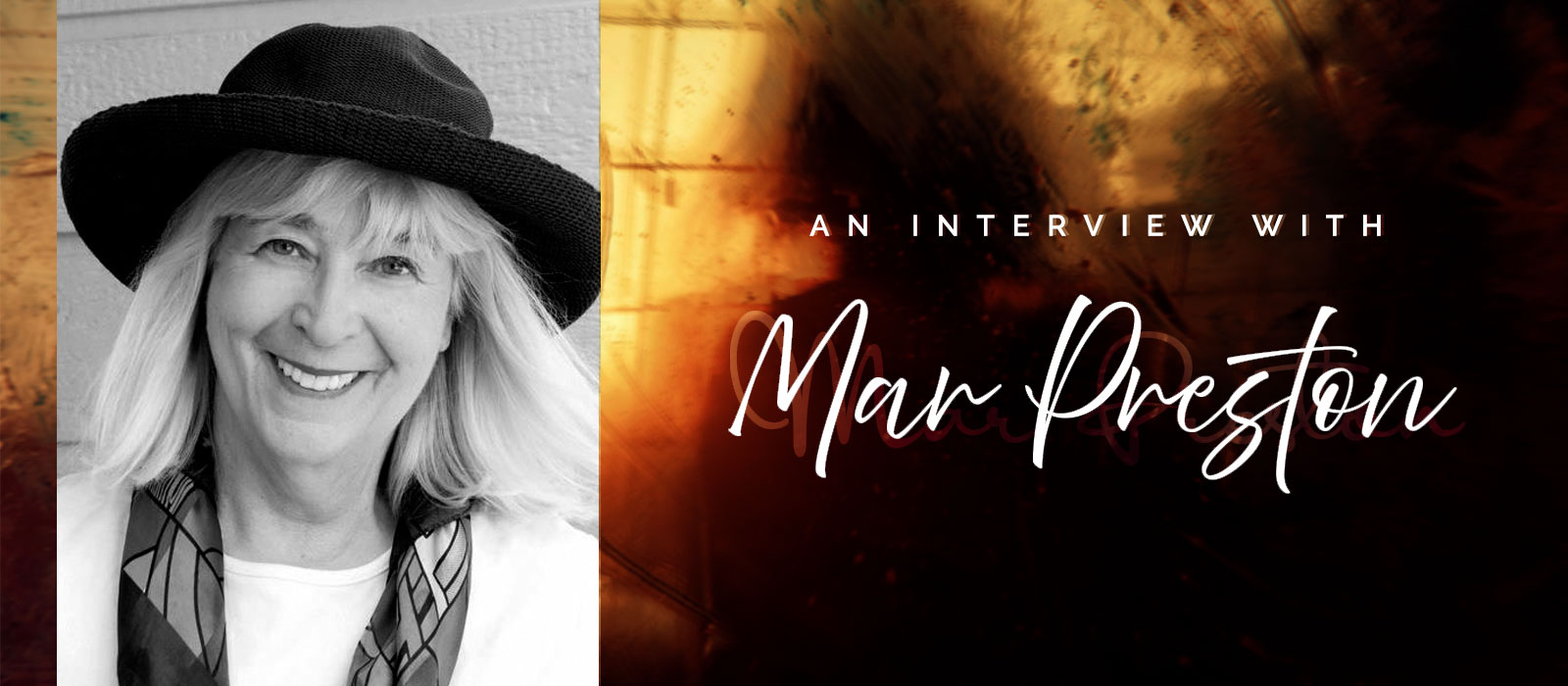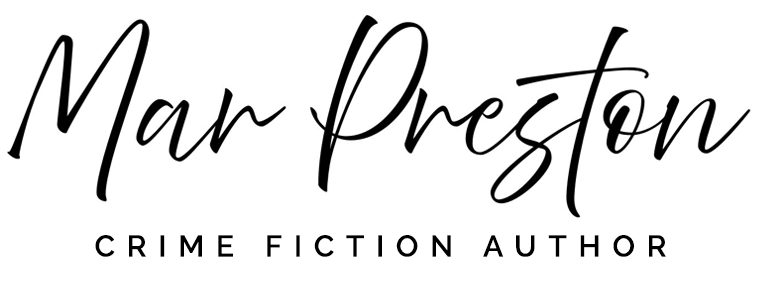
by Elaine Ash
Elaine Ash: Tell me a little about books and your formative years.
Mar Preston: I grew up in North Bay, Ontario in Canada. There were always books around in our family. We’d fill the back seat of the car with books to return to the library at least once a week. Books were recreation. We didn’t get television until I was 13. Then, books were what TV has become now.
EA: Was there one title that stuck out in particular?
MP: Girl of the Limberlost by Gene Stratton-Porter, an American naturalist. I’ve never forgotten that book and I’m afraid to reread it because it might not live in my memory as it did then. It’s a young girl’s coming-of-age book. I loved Farley Mowatt stories about the Canadian Arctic. I still think of his story about marking his territory from wolves by drinking two pots of tea and going around and peeing on every bush to keep them away.
EA: Did you write as a girl?
MP: Not really, I didn’t have the confidence. Growing up was isolated and provincial, and I thought smart people lived in cities. I didn’t think about writing until I came to California. I wasn’t very put together in those days. I was so ashamed that I had no college degree that I lied about having one for five years. Now it seems so sad to me. Why would you lie about something like that? But everyone I knew had a college degree, so I couldn’t bear to be the only one.
About 7 years later I got a BA at UCLA and started working as a researcher. I bought a computer when it was like buying a Lamborghini. I also wrote grants and brochures and community news stories. In my spare time, I wrote short stories.
EA: You also wrote a novel?
MP: Yes, a going-home story. I wrote four novels to teach myself how to write and I got an agent on the first one, but I wasn’t really ready and nothing happened.
EA: You continued with your education, too.
MP: In 1989 I enrolled in the Masters of Professional Writing program at USC. My third novel was the fulfillment of my degree. I had a wonderful teacher named Ben Masselink who really stirred me and thought I ought to keep going. So I did. In the mid-90s I decided on murder mysteries. I had a friend who had been an editor in New York and she looked at the first one I wrote. It was such a bad review that I didn’t write for two years.
EA: Oh the deadly review! Everybody’s been there at least once.
MP: My turning point was getting trained by a Los Angeles think-tank to work with the hotel employees union on a living wage campaign in Santa Monica. I loved the job. It gave me a birds-eye view of the City Council and the politics of my city. NO DICE is based that experience. I worked so hard I bought myself a heart attack after four months.
EA: WHAT?
MP: I was alone at the union hall in Santa Monica, and the IT guy who was supposed to fix our computers finally got around to stopping by. He’d been ignoring my requests for months, but he was the one who found me lying on the bathroom floor and called 911. I was in the Santa Monica path lab in 12 minutes, so no damage was sustained. It straightened me up considerably.
EA: What happened when you held your first copy of NO DICE?
MP: I shrieked with horror because I saw all the mistakes in it. I hadn’t hired an editor or a proofreader. I didn’t know abut those necessities then. I had a couple of people proof it and resubmitted the file. So it’s fixed now.
EA: What is your dream as a writer?
MP: It’s always been an outside job for people to affirm me as a writer rather than me claiming myself as a writer. If you see what I mean. My ideal is to sell modestly, have people recognize my name among the websites and communities that I admire. I would love to be invited to conferences to speak.
EA: Can you define a mystery writer for me?
MP: A mystery writer is a person with imagination who veers toward the dark side and relishes human behavior in all its complexities. One who can look straight at all the awful things people do to each other and make fiction of it. Maybe it’s a way of distancing, a way of gaining some control over life. Maybe that’s why I love to write.
Mar Preston
I came of age in Santa Monica. I happened to be in my 40s, but that´s when I found myself. Living at 7th and San Vicente was my little paradise. I looked out on a row of exotic coral trees. The neighborhood soundscape was the slap of joggers´ shoes and the roar of Big Blue buses taking Latinas to jobs with rich households in the Palisades. I worked every Santa Monica election and became involved with the living wage movement. Excitement and political drama made it the time of my life. No Dice came out of my work with union laborers and the big hotels of Santa Monica. I sat in at City Council meetings and observed the players—rent controllers versus developers, big money versus cheap labor. It was the perfect backdrop for a fictional story about casinos vying for a piece of Santa Monica´s action. In my novel, everything busts loose when a murder throws two unlikely characters together: Ginger McNair, community coalition-leader, and Dave Mason, a hard-nosed cop.
Rip-Off, the second in the Dave Mason series, came from my life-long fascination with the hard countries of the Middle East and the Caucasus. I’ve always felt so White, Anglo-Saxon Protestant, and wanted to be ethnic. Anything ethnic but what I was.

